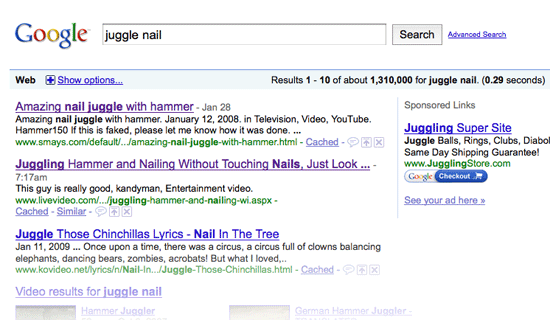 I got a few minutes with Missouri State Senator Charlie Shields this morning. Senator Shields –the Majority Floor Leader– was kind enough to let me ask a few questions at a very busy time for the legislature. I wanted his take on how the Senate uses –or doesn’t– use technologies like laptops, the web, smart phones, Blackberry’s, blogs and podcasting.
I got a few minutes with Missouri State Senator Charlie Shields this morning. Senator Shields –the Majority Floor Leader– was kind enough to let me ask a few questions at a very busy time for the legislature. I wanted his take on how the Senate uses –or doesn’t– use technologies like laptops, the web, smart phones, Blackberry’s, blogs and podcasting.
The House allows laptops in the chamber but the Senate doesn’t. The concern seems to be that senators would be surfing the web or checking email and not paying attention to debate and the business of the senate. Senator Shields does not agree with that position and feels it’s just a matter of time until laptops are allowed.
I asked about Blackberry’s and smart phones, which are allowed. He said you don’t have to look hard to find a Senator checking his email.
The media can have laptops in the press gallery at the press table. I didn’t ask but assume there is wifi access for the media because I could get it in the hallway waiting to talk with the senator.
I asked if any bloggers had requested permission to cover the senate. He said not to his knowledge. I wasn’t entirely clear on his answer to the question, would bloggers be allowed to cover the proceedings. I think both the House and Senate make a pretty clear distinction between the “real” media and bloggers.
Senator Shields was unaware of any of his senate colleagues blogging. It surprises me a bit that some of the more clued-in haven’t discovered the power of this tool.
As for personal tech gadgets, Senator Shields has a Blackberry and an iPod on which he sometimes listens to jazz podcasts and NPR’s Car Talk.
He concluded with the prediction that the role of technology in the Senate will increase dramatically in coming years. No doubt.
Update: Missourinet News Director Bob Priddy –who has been covering the Missouri legislature since the early 70’s– adds and clarifies:
“We actually don’t have a press gallery as the House does. We have a press table which is on the Senate floor. The senate, of course, has had its sessions on the internet, first on our site, then on others, and then on its own site for many years.
The irony of the idea that Senators will be at their desks checking email or playing games or bidding on ebay is that most senators don’t stay on the floor unless the legislation being considered is really big or unless they have a specific role with any bill. They can be in their offices checking their email or playing games or shopping on ebay.
The use of blackberries and smart phones on the Senate floor is a mixed blessing. It does enable the senators to get information from their office or their staff without leaving their desks. But it also enables lobbyists to send them messages from the hallways, giving lobbyists access to the Senate floor although the rules don’t allow them in the chamber in person. For some folks, that’s not a comfortable relationship but nobody has figured out a way to control that access, nor do they seem to want to.
The use of the computer has helped the amendment process. Senate staff sits at the other table at the front side of the chamber and can prepare amendments on the computer and run them into a printer pretty quickly. It’s been several years since I’ve seen a Senator write an amendment at the desk. In fact, debate is often slowed or stopped so a Senator can go to the staff table and have the staff write an amendment.
Of course the computer has made it a whole lot easier for the people in the clerk’s office to compile the journal, prepare copies of bills with amendments included in them before the bill goes up for final passage—-and just generally manage the flow of documents that go through the place.”
PS: If you’re wondering why I didn’t just post the audio of the interview… I hit the wrong button on my new fancy-pants digital recorder and erased the interview. Please don’t take my car keys.

 One of our reporters stepped on blogger toes earlier this week. Steve Walsh is a reporter for The Missourinet, a radio network headquartered in Jefferson City. He took over the network blog a few weeks back and has been doing a good job with it. The post in question attempted to make some “distinctions” between MSM bloggers and “political” bloggers.
One of our reporters stepped on blogger toes earlier this week. Steve Walsh is a reporter for The Missourinet, a radio network headquartered in Jefferson City. He took over the network blog a few weeks back and has been doing a good job with it. The post in question attempted to make some “distinctions” between MSM bloggers and “political” bloggers.


 Our offices are just a couple of hundred feet from the headquarters of the Missouri Farm Bureau. As I headed out for lunch I noticed a motor home had pulled off the highway, just in front of FB building. I didn’t have my camera (I know, I know) so I didn’t get a shot but found this on the FarmBureauLies.com website.
Our offices are just a couple of hundred feet from the headquarters of the Missouri Farm Bureau. As I headed out for lunch I noticed a motor home had pulled off the highway, just in front of FB building. I didn’t have my camera (I know, I know) so I didn’t get a shot but found this on the FarmBureauLies.com website.